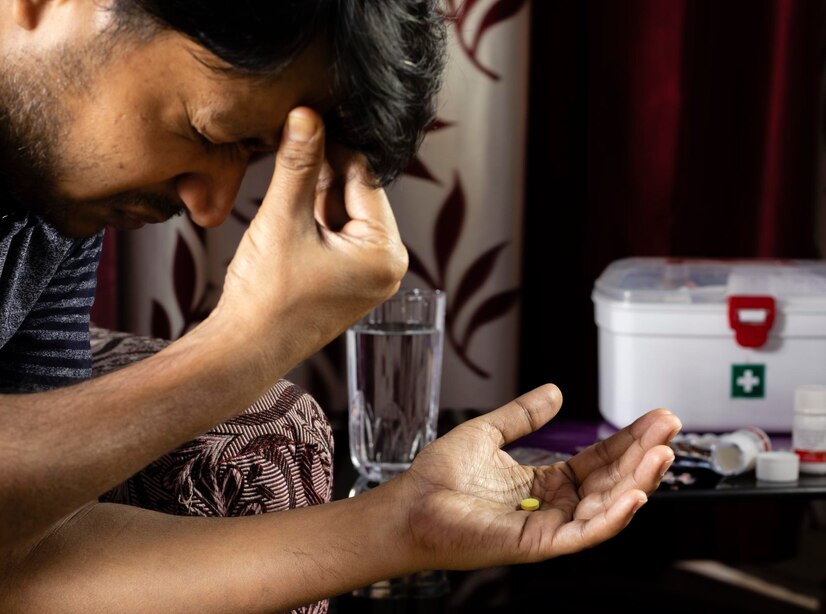Recovery from addiction is a monumental journey that requires not only determination and resilience but also a comprehensive understanding of the various factors that can influence long-term sobriety. Among these factors, stress stands out as a significant challenge that many individuals in recovery face. Stress, if not managed effectively, can become a formidable barrier to maintaining sobriety, potentially leading to relapse.
At All American Detox, we recognize the critical role that stress management plays in the recovery process. Our approach is centered around providing individuals with the tools and techniques necessary to navigate the complexities of stress, thereby supporting their journey toward sustained sobriety. This article delves into the intricacies of stress during recovery, explores its impact on sobriety, and offers practical strategies for managing stress effectively.
In the following sections, we will discuss the nature of stress in the context of recovery, identify common triggers, and help you recognize the symptoms of stress. We will then introduce a variety of stress management techniques, ranging from mindfulness and meditation to physical exercise and healthy lifestyle choices. Additionally, we will highlight the importance of creating a supportive environment, including building a robust support network, establishing a routine, and seeking professional help when needed.
Contact Us for Detox Services
Understanding Stress in Recovery
Navigating the path to long-term sobriety is a challenging journey, one that often involves facing and managing various stressors. Understanding stress in the context of recovery is crucial for developing effective coping mechanisms and maintaining sobriety. In this section, we will explore the impact of stress on sobriety, identify common stress triggers, and discuss how to recognize stress symptoms.
The Impact of Stress on Sobriety
Stress is a natural response to perceived threats and challenges, activating the body’s fight-or-flight response. While this response can be beneficial in short bursts, chronic stress can have detrimental effects, particularly for individuals in recovery. High levels of stress can lead to increased cravings and a higher risk of relapse. This is because stress can trigger emotional and psychological responses that make it difficult to resist the temptation to return to substance use as a coping mechanism.
In the context of recovery, the body’s response to stress can be heightened due to the absence of the substance that was previously used to self-medicate. This heightened sensitivity can create a vicious cycle where stress exacerbates cravings, and the struggle to maintain sobriety increases stress levels. Therefore, understanding and managing stress is a cornerstone of successful recovery.
Common Stress Triggers
Identifying common stress triggers is the first step in managing stress effectively. Stress triggers can vary widely among individuals, but there are several common factors that tend to affect those in recovery:
- Environmental Triggers: Situations or places associated with past substance use can evoke strong memories and cravings. For instance, revisiting a location where one used to drink or use drugs can be a significant stress trigger.
- Social Triggers: Interactions with certain people or social settings can also be stressful. This includes encountering friends or acquaintances who are still using substances or attending social events where substances are present.
- Emotional Triggers: Negative emotions such as anger, sadness, loneliness, and frustration can act as powerful stress triggers. These emotions can be particularly intense during the early stages of recovery when individuals are learning to cope without substances.
- Physical Triggers: Physical discomfort or illness can increase stress levels and the temptation to use substances for relief. This includes withdrawal symptoms, pain, or fatigue.
Recognizing Stress Symptoms
Recognizing the signs and symptoms of stress is essential for timely intervention and management. Stress can manifest in various ways, both physically and mentally. Common symptoms include:
- Physical Symptoms: Headaches, muscle tension, fatigue, changes in appetite, and sleep disturbances are common physical manifestations of stress. These symptoms can exacerbate the difficulty of maintaining sobriety.
- Emotional Symptoms: Feelings of anxiety, irritability, depression, and mood swings are common emotional responses to stress. These emotions can be overwhelming and may increase the desire to revert to old coping mechanisms.
- Cognitive Symptoms: Stress can affect cognitive functions, leading to difficulty concentrating, memory problems, and negative thought patterns. These cognitive disruptions can hinder one’s ability to focus on recovery goals.
- Behavioral Symptoms: Changes in behavior such as social withdrawal, neglect of responsibilities, and increased use of substances or other coping mechanisms (e.g., overeating, overspending) can indicate heightened stress levels.
By understanding the impact of stress on sobriety, identifying common stress triggers, and recognizing stress symptoms, individuals in recovery can take proactive steps to manage stress effectively. The following sections will delve into specific techniques and strategies for managing stress and creating a supportive environment conducive to long-term sobriety.
Effective Stress Management Techniques
Navigating the path of recovery requires not only determination but also the adoption of effective stress management techniques. Stress, if unaddressed, can become a significant barrier to maintaining long-term sobriety. By integrating various strategies into daily life, individuals can build resilience and better manage the inevitable stressors that come their way. Here are some proven techniques:
Mindfulness and Meditation
Mindfulness and meditation are powerful tools for stress reduction. These practices involve focusing one’s awareness on the present moment while calmly acknowledging and accepting one’s feelings, thoughts, and bodily sensations. By practicing mindfulness, individuals can create a mental space that allows them to respond to stress more thoughtfully rather than react impulsively.
- Deep Breathing Exercises: Simple deep breathing exercises can be performed anywhere and at any time. Inhale deeply through the nose, hold for a few seconds, and exhale slowly through the mouth. This can help activate the body’s relaxation response, reducing stress and promoting a sense of calm.
- Guided Meditation: There are numerous apps and online resources that offer guided meditation sessions. These guided practices can help individuals learn to focus their minds and find inner peace, even in the midst of external chaos.
- Mindfulness-Based Stress Reduction (MBSR): MBSR is an evidence-based program that teaches mindfulness to help people cope with stress, anxiety, pain, and illness. Participating in an MBSR course can provide structured support and instruction in mindfulness practices.
Physical Exercise
Regular physical exercise is a cornerstone of effective stress management. Exercise has been shown to reduce levels of the body’s stress hormones, such as adrenaline and cortisol, and stimulate the production of endorphins, which are natural mood elevators.
- Aerobic Exercise: Activities like running, swimming, or cycling can be particularly effective at reducing stress. These exercises increase heart rate and promote cardiovascular health while also providing an outlet for pent-up tension.
- Strength Training: Weight lifting and resistance exercises can help improve muscle tone and strength, contributing to overall physical well-being and self-esteem. The focus and discipline required in strength training can also serve as a mental distraction from stress.
- Yoga and Tai Chi: These forms of exercise combine physical movement with mindfulness and breath control. They are excellent for enhancing flexibility, strength, and mental focus, and they provide a holistic approach to stress reduction.
Healthy Lifestyle Choices
Adopting healthy lifestyle habits can significantly mitigate stress and support overall well-being during recovery.
- Balanced Diet: Eating a nutritious diet can help stabilize mood and energy levels. Consuming a variety of fruits, vegetables, whole grains, lean proteins, and healthy fats can provide the necessary nutrients to support both physical and mental health.
- Adequate Sleep: Quality sleep is essential for stress management. Aim for 7-9 hours of sleep per night to allow the body and mind to recover and repair. Establishing a regular sleep routine can help improve sleep quality.
- Avoiding Triggers: Identifying and avoiding unnecessary stressors, such as certain social situations or environments, can help maintain a sense of control and stability. This may also include minimizing exposure to negative news or social media.
By incorporating these stress management techniques, individuals in recovery can foster a more balanced and resilient approach to life. These practices not only enhance the ability to cope with stress but also support the broader goal of long-term sobriety. In the next section, we will explore how creating a supportive environment can further bolster these efforts.

Creating a Supportive Environment
Creating a supportive environment is crucial for managing stress during recovery. A nurturing and stable setting helps to ease the transition and sustain long-term sobriety. Here are some key strategies to establish such an environment:
Building a Support Network
One of the most effective ways to create a supportive environment is by building a strong support network. This network can consist of family, friends, support groups, or mentors who understand and respect your recovery journey. Regular communication with these individuals can provide emotional support, offer advice, and help you stay accountable to your sobriety goals. Engaging in group therapy sessions or attending recovery meetings can also foster a sense of community and shared understanding, which can be incredibly comforting during stressful times.
Establishing Routine
Routines provide structure and predictability, which can significantly reduce stress levels. Establishing a daily schedule that includes time for self-care, work, social activities, and relaxation can help create a balanced lifestyle. Consistent sleep patterns, regular meal times, and scheduled exercise sessions can contribute to physical and mental well-being. Moreover, having a routine can minimize the likelihood of encountering unexpected stressors and provide a sense of control over your daily life.
Seeking Professional Help
Incorporating professional help into your support system can be immensely beneficial. Therapists, counselors, and healthcare providers specializing in addiction recovery can offer tailored strategies to handle stress. They can provide cognitive-behavioral techniques, stress management tools, and other therapeutic methods to help you navigate challenges. Additionally, regular check-ins with a professional can ensure that you are progressing in your recovery and dealing with stress in healthy ways.
Creating a supportive environment is a multifaceted effort that involves building a reliable support network, establishing consistent routines, and seeking professional guidance. By focusing on these areas, individuals in recovery can create a stable and nurturing environment that significantly alleviates stress and supports long-term sobriety.
Managing Stress in Recovery at All American Detox
Successfully managing stress is an essential component of maintaining long-term sobriety. The journey of recovery is fraught with challenges, and stress can often act as a significant impediment to staying on course. However, by understanding the impact of stress on sobriety, recognizing common stress triggers, and identifying symptoms early, individuals can take proactive steps to mitigate its effects.
Implementing effective stress management techniques, such as mindfulness and meditation, physical exercise, and making healthy lifestyle choices, can provide tangible benefits in daily life. These practices not only reduce stress but also enhance overall well-being, making it easier to resist the lure of substance use.
Creating a supportive environment further bolsters these efforts. Building a robust support network, establishing a consistent routine, and seeking professional help when necessary are all critical strategies for maintaining stability and fostering resilience.
Ultimately, the path to recovery is deeply personal and unique to each individual. By incorporating these techniques and tips into your recovery plan, you can better navigate the complexities of stress and pave the way for a healthier, sober life. At All American Detox, we are committed to supporting you every step of the way as you work towards lasting sobriety and a brighter future.
FAQ’s
- Why is stress management crucial during addiction recovery?
Answer: Stress can trigger cravings and relapse. Learning healthy coping mechanisms is vital for long-term success.
- What are some common triggers of stress faced by individuals in recovery at All American Detox?
Answer: Triggers can include social situations, arguments, financial concerns, and even positive changes like new job responsibilities.
- What relaxation techniques can help individuals in recovery at All American Detox manage stress?
Answer: Practices like deep breathing exercises, meditation, progressive muscle relaxation, and yoga can effectively reduce stress and promote overall well-being.
- How can exercise support stress management in recovery at All American Detox?
Answer: Exercise releases endorphins, natural mood-lifters that combat stress. All American Detox encourages healthy exercise routines tailored to individual needs.
- How can mindfulness practices at All American Detox help individuals in recovery manage stress?
Answer: Mindfulness teaches present-moment awareness and acceptance, allowing individuals to manage stressful thoughts and emotions without judgment.
- What role does healthy sleep play in managing stress during recovery at All American Detox?
Answer: Prioritizing quality sleep allows the body and mind to rest and recharge, making them more resilient to stress. All American Detox promotes healthy sleep hygiene practices.
- How can proper nutrition at All American Detox help individuals in recovery manage stress?
Answer: Eating a balanced diet provides essential nutrients that support the body’s stress response. All American Detox offers personalized meal plans and nutritional guidance.
- What are some benefits of spending time in nature for stress management in recovery at All American Detox?
Answer: Immersing oneself in nature can significantly reduce stress and improve overall well-being. All American Detox encourages spending time outdoors whenever possible.
- How can building a strong support network at All American Detox help individuals manage stress in recovery?
Answer: Sharing experiences and connecting with others in recovery can offer valuable support and a sense of belonging, reducing feelings of isolation and stress.
- What resources does All American Detox offer to help individuals develop healthy coping mechanisms for stress in recovery?
Answer: All American Detox incorporates stress management techniques into our addiction treatment programs. We offer group therapy sessions, individual therapy, and educational workshops to equip individuals with effective coping skills.



















